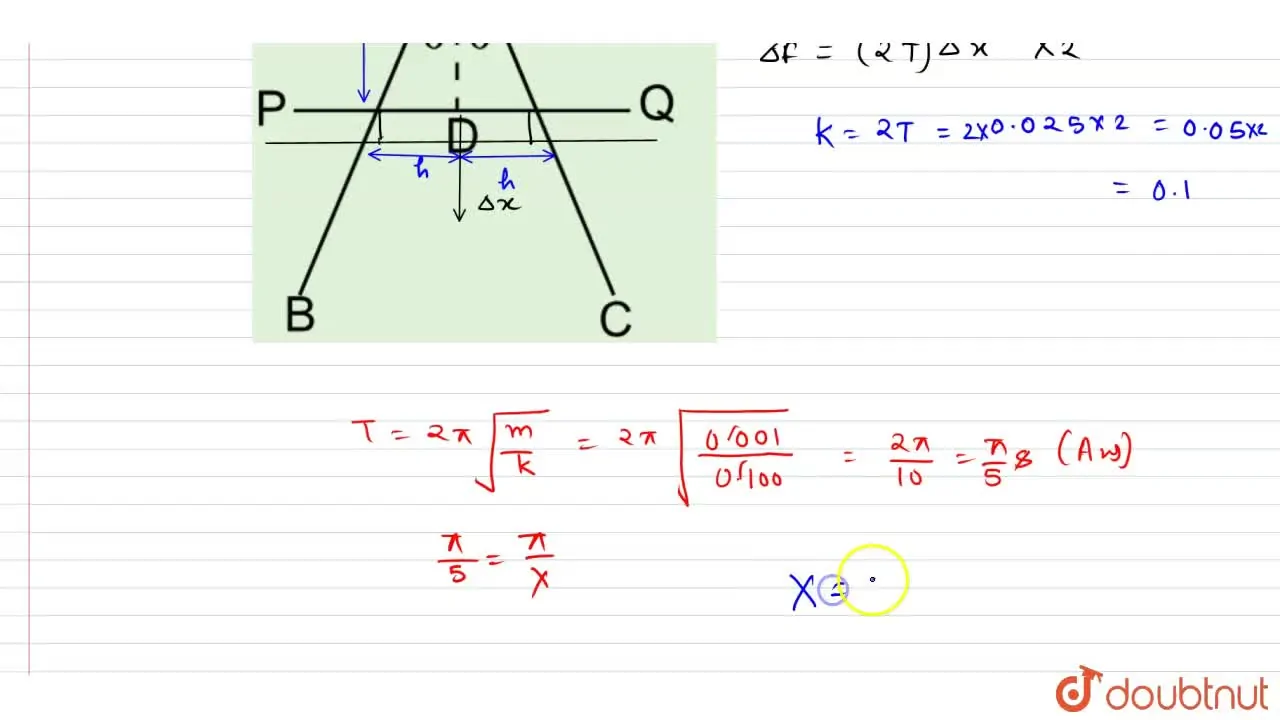In the figure shown AB, BC and PQ are thin, smooth, rigid wires. AB and AC are joined at A and fixed in vertical plane. ∠BAC=2θ=90∘and line AD is angle bisector of angle BAC. A liquid of surface tension T = 0.025 N/m forms a thin film in the triangle formed by intersection of the wires AB, AC and PQ. In the figure shown the uniform wire PQ of mass 1 gm is horizontal and in equilibrium under the action of surface tension and gravitational force. Find the time period of SHM of PQ in vertical plane for small displacement from its mean position, in the form πXs and fill value of X.
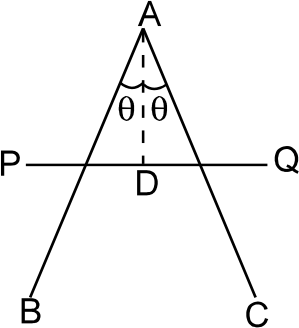
The F.B.D. of wire PQ is
The force due to surface tension FST=2T×2ADtanθ

for wire to be in equilibrium (figure(a))
4TADtanθ=mg.....(1)
If the wire PQ is at a distance x below the mean position, the restoring force on the wire is (figure (b))
−ma=4Ttanθ(AD+x)−mg=4Ttanθx
Hence the wire PQ executes SHM
a=−4Tmtanθx
comparing with a =−ω2x we get
ω2=4Tmtanθ
or T=2π√m4Ttanθ=2π√1×10−34×25×10−3=π5s
Related Playlists
Similar Questions
Find the tension in the strings AC and BC shown in figure.
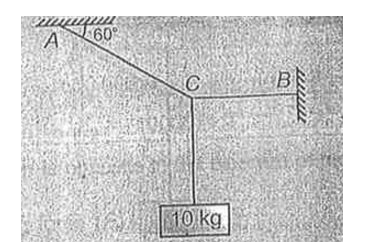 View Solution
View Solution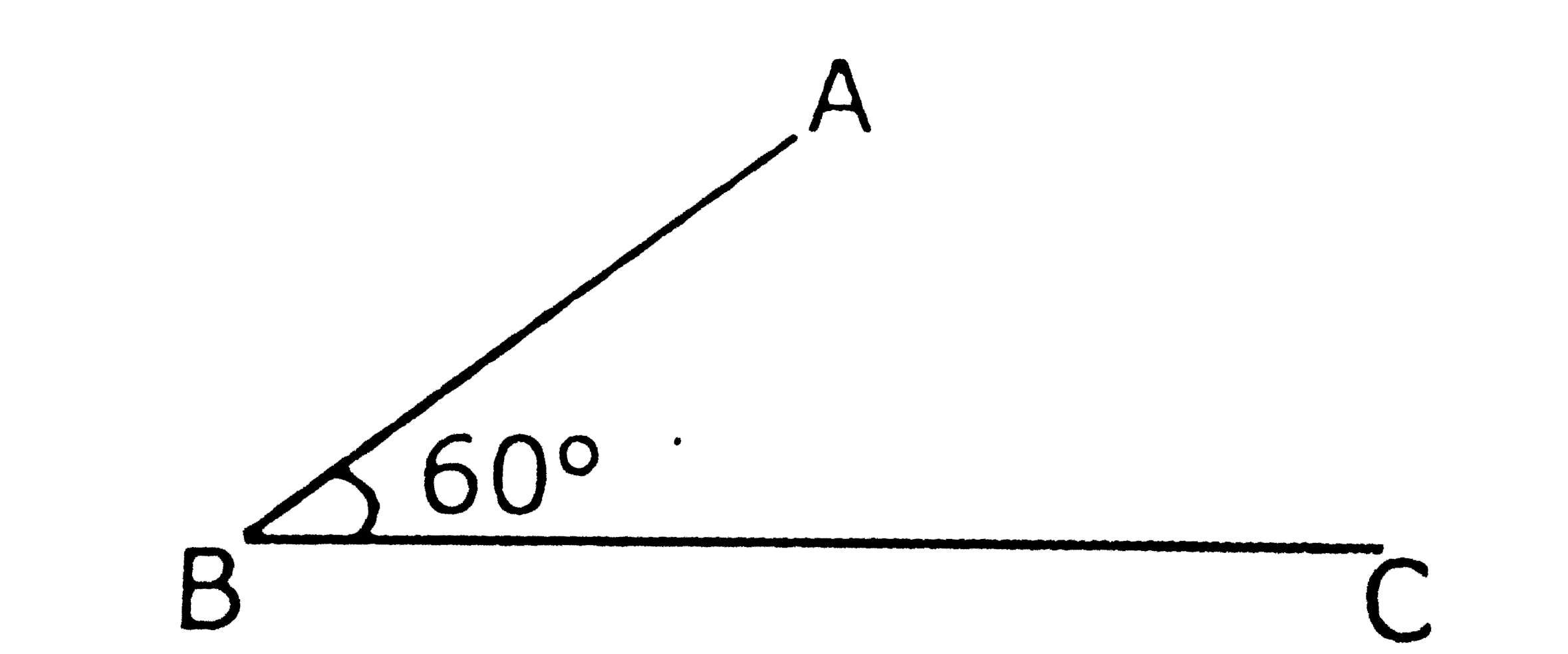
In the figure shown ABC is a uniform wire. If centre of mass of wire lies vertically below point A, then BCAB is close to :View SolutionIn Figure 2, AB and AC are tangents to the circle with centre O such that angle BAC = 40°. Then angle BOC is equal to
View SolutionIn the figure, if AB=8,BC=6,AC=10andCD=9, then AD =
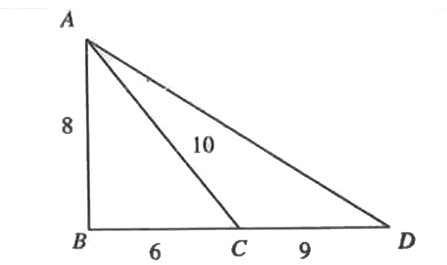 View Solution
View SolutionIn the given figures, AB > AC and D is any point on BC.
Prove that : AB >AD.
 View Solution
View SolutionIn the given figure, AB and EC are parallel to each other. Sides AD and BC are 2 cm each and are perpendicular to AB.
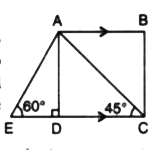
Given that ∠AED=60∘and∠ACD=45∘, calculate :
(ii) ACView SolutionInΔABC,AB=ACandD is a piont in side BC such that AD bisect angle BAC.
Show that AD is perpendicular bisector of side BC.View SolutionIn the figure, given, ABC is a triangle and BC is parallel to the y-axis. AB and AC intersect the y-axis at P and Q respectively.
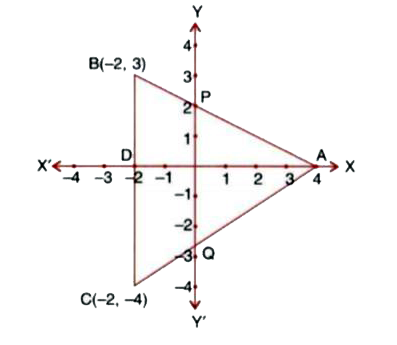
Find the length of AB and AC.View SolutionIn the figure, given, ABC is a triangle and BC is parallel to the y-axis. AB and AC intersect the y-axis at P and Q respectively.
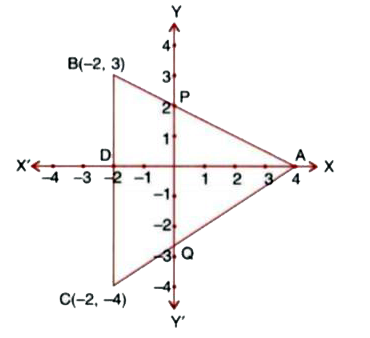
Find the equation of the line AC.View SolutionA wire frame ABCD has a soap film. The wire BC can slide on the frame without friction and it is in equilibrium in the position shown in the figure. Find m, if T is the surface tension of the liquid.
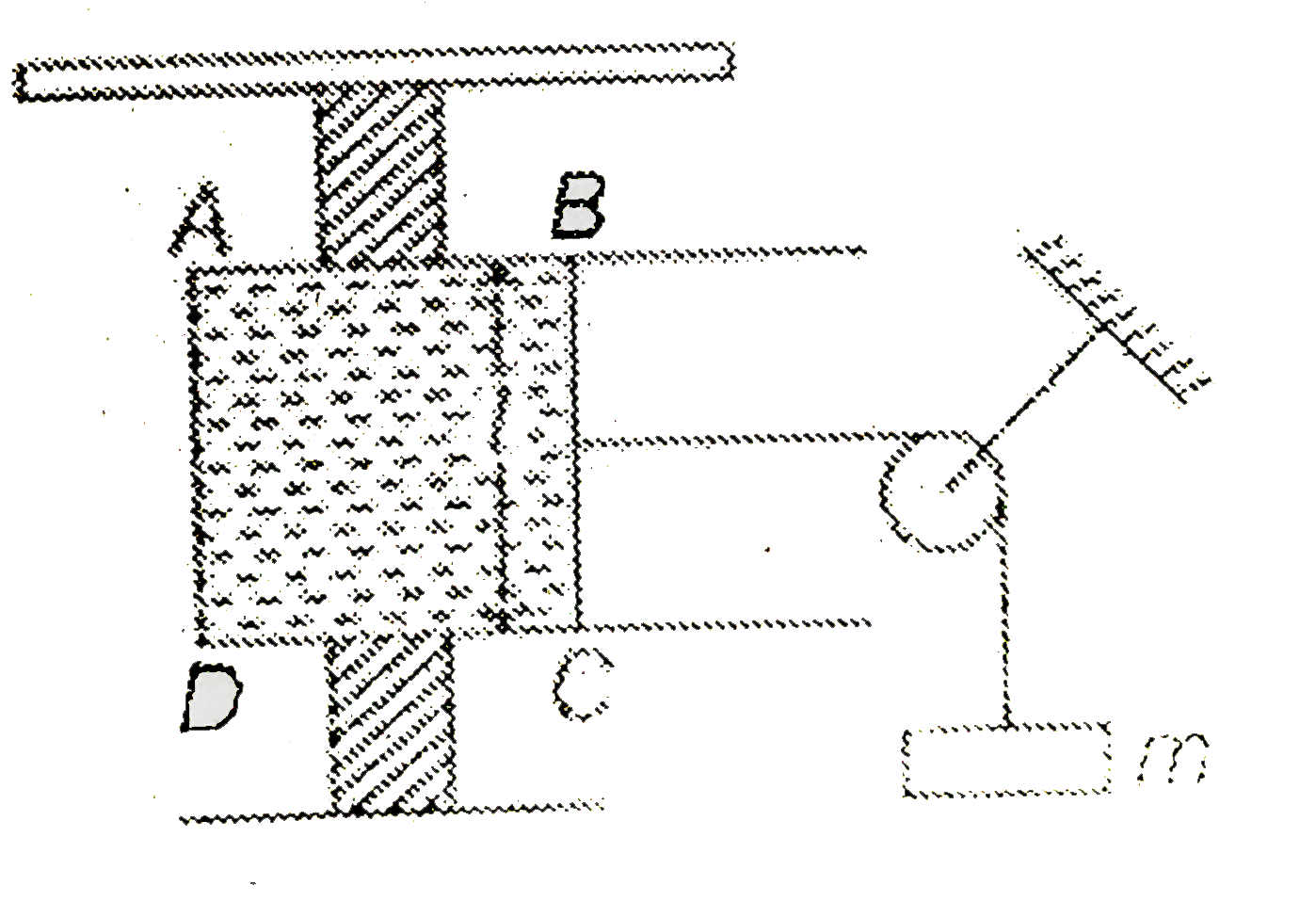 View Solution
View Solution

